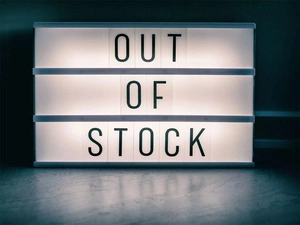Electronics, handsets short of Diwali demand; premium, imported models worst hit
26 October, 2021

Demand has outstripped supply just before the crucial Diwali shopping period for premium consumer electronics and smartphones with several popular models vanishing from the market.
Retailers and industry executives said several best-selling models such as those in Apple's iPhone 11, 12 and 13 series, Samsung's Galaxy Fold and Flip models, high-end television sets and imported appliances across most brands are either out of stock or supplies are low. The shortage is 15-30% of potential demand, industry executives said.
The supply crunch has gotten magnified due to robust sales during the Navratri period (October 2-15), led by marketplaces such as Flipkart and Amazon, and brick-and-mortar retailers like Reliance Digital, Croma, Vijay Sales and Great Eastern Retail.
"Supplies continue to be unpredictable," said Avijit Mitra, managing director of Tata-owned electronics retail chain Croma. "It is actually more (in appliances) where chips are required, which means premium-end and imported models."
Delivery Delays
Amazon and Flipkart, in particular, had forecast this surge and sellers had stocked up much earlier with higher inventory, which is why the situation is relatively better in these marketplaces. Diwali is on November 4.
For Apple in particular, several leading chains and executives said this is the worst-ever supply situation for iPhones at present, considering demand is steep. The iPhone maker likely shipped over 2 million handsets to India last quarter, which is a record in itself, as per market researchers. Despite that, Apple's own online store now has a delivery lead time of three-four weeks for even two-year-old models like the iPhone 11. The popular variants of iPhone 12 in Flipkart are out of stock, while some others have a week's delivery lead time. The newly launched iPhone 13 Pro models are out of stock with delivery time of over a month on Apple's own online store.
Samsung India has sent an SOS to headquarters for more stock for the newly launched super-premium smartphones since those are currently imported from South Korea, said people with knowledge of the matter. Smartphone market leader Xiaomi warned a few leading brick-and-mortar chains that there could be supply disruptions for the next seven-10 days.
'Ramping up Local Manufacturing'
A Xiaomi spokesperson said there have been shortages across the supply chain due to challenges stemming from the pandemic.
"During the festive season, we have seen a tremendous increase in demand from consumers," the Xiaomi spokesperson said. "Witnessing a steady increase in demand and keeping in mind the gap between demand and supply, we have been working with various vendors and are trying to do our best to supply as much as possible. To ensure we bridge the gap, we have been working towards expanding our local manufacturing capabilities." Apple and Samsung didn't respond to queries.
The consumer electronics and smartphone industry has been facing an acute supply crunch for the past few weeks due to a shortage of semiconductors - a crucial component in smartphones, smart TVs and high-end appliances. Besides global demand having also surged, shipping containers are in short supply with retailers and online stores in western nations stocking up for holiday sales.
Neeraj Bahl, managing director of BSH Household Appliances India, which sells Bosch and Siemens appliances, said the company is losing almost 15% of potential sales during Diwali due to the supply shortage. "Most of our fastest-selling and imported premium range are out of stock, while even our India refrigerator plant production is affected due to component issues," he said.
Crucial Festive Period
High-end imported products priced at ₹75,000 to Rs 1 lakh and above are facing supply constraints, said Deepak Bansal, vice-president, LG Electronics India, the country's largest appliance manufacturer.
"Shipments are delayed and if demand further picks up during the next seven-10 days, the shortage will increase," he said.
An executive with a leading smartphone maker said the industry posted record sales during the Navratri period led by ecommerce and hence a gap was inevitable given the global supply crunch.
